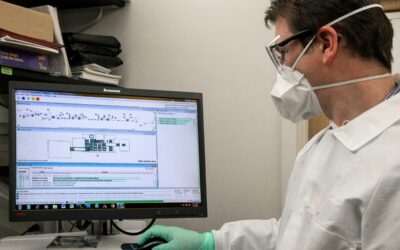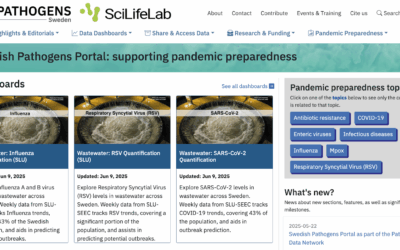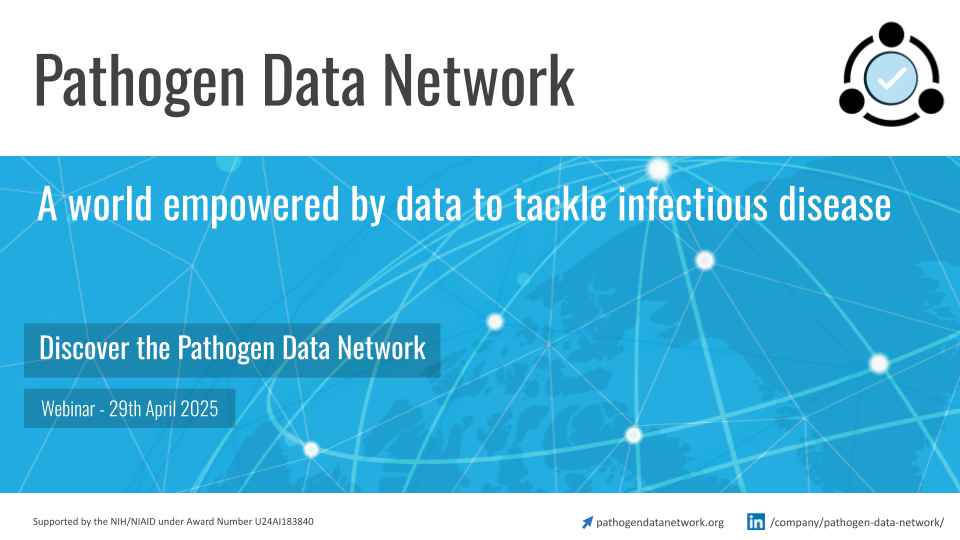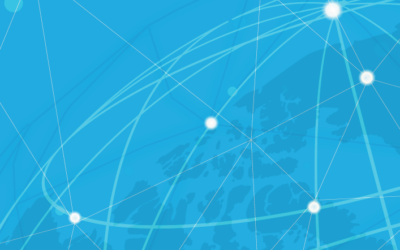ACHIEVEMENTS
The question about the next major outbreak is not if it will happen — but when and how. At the Pathogen Data Network (PDN), our mission is to ensure the global community is ready to tackle it with speed, accuracy, and fairness. Through open, connected data, we help public health authorities respond faster, support the discovery of treatments, and ultimately save lives — while reducing the immense social and economic costs of disease outbreaks. Discover our progress across our four interconnected core objectives.
From pathogen data to global impact
PDN is not just a data initiative — it is a cost-saving, life-saving infrastructure investment. By promoting open data, respecting sovereignty, aligning best practices, and fostering global collaboration, PDN helps avoid redundant efforts and ensures that every cent invested delivers more impact. Together, we are helping science move faster, more fairly, and more efficiently — in service of the next infectious disease outbreak, wherever it happens.
Our four objectives feed from each other: making more data discoverable means having an appropriate data sharing framework in place to encourage ‘data generosity’ and ensure benefit sharing; effective surveillance and response rely on access to connected data of various types and user-friendly interfaces; and all of it requires a skilled, informed community to put systems into action. Together, these objectives form the foundation for a more prepared, more collaborative global health ecosystem.
1. Fostering data discovery to enable a worldwide perspective
Critical data on pathogens, hosts, and vectors is often fragmented, siloed, or inaccessible. PDN helps reduce duplication, support data sovereignty, and connect existing datasets to provide a clearer global picture.
We are working towards a federated data discovery system that allows researchers and public health agencies to find and use pathogen-related data from multiple trusted sources — all in one place.
Key deliverables:
-
- The Pathogens Portal serves as a central hub to access connected and indexed datasets from various data sources. As PDN advances, more datatypes and sources will be integrated.
- Distributed Pathogen Portal Nodes enable local, national or consortium-led projects. The first ones to be initiated span several continents. To support their speedy deployment, a reference implementation software was also released. As PDN progresses, the data they harness will be indexed at the central Pathogen Portal.
Latest achievements
2. Supporting efficient surveillance and outbreak response
Public health decisions depend on up-to-date and trusted data. Genomic and environmental surveillance — including wastewater monitoring — are powerful tools, but they need shared systems and coordinated workflows to deliver best results fast.
As part of PDN, we are building cutting-edge computational tools and data workflows to help public health authorities and other experts detect, track, and respond to infectious disease threats in real time and at the relevant granularity.
Key deliverables:
-
- To illustrate how PDN’s integrated approach can enhance the way we tackle outbreaks, a use case is developed to better tackle pathogen surveillance from wastewater. A dedicated page on the central Pathogen Portal offers a centralized view on granular, connected data from pathogens found in wastewater, and an app was developed on how to use these data in a fair and ethical way (Ethical guidance portal). As PDN unfolds, the complete associated infrastructure and governance will be put in place.
- Providing an active support during public health emergencies, such as with the upcoming release of a “Global pathogen priority list” in a machine-readable format to support a fast tailoring of resources and dashboards, and outbreak investigations across sites with reproducible, transparent tools.
Latest achievements
3. Enabling timely data sharing
Open data is a foundation of preparedness to major outbreaks. PDN promotes policies and systems that respect data sovereignty and benefit sharing while enabling fair, fast, and secure data sharing across borders.
Key deliverables :
-
- Ethical frameworks and governance models for data sharing including the launch of an ethical guidance portal, initially targeting wastewater pathogen data.
- Contributing to international guidance on benefit-sharing and trust-building. For instance, PDN was closely following the elaboration of an international treaty on major global outbreaks agreed in April 2025 and if ratified, will be implementing the principles it sets forth.
- Establish private data sharing environments to enable collaboration on prepublication data, with data hubs hosted at EMBL-EBI. This is already possible through the Data Hubs Portal.
Latest achievements
4. Preparing the next generation workforce
The tools we build are only as impactful as the people who can use them. PDN invests in developing a skilled, collaborative global workforce capable of responding to current and future outbreaks.
Key deliverables:
-
- Practical training and e-learning resources to researchers and institutions. A first public webinar including a demonstration of the Pathogen Portal took place in April.
- Supported capacity building including in underrepresented regions. To assess the challenges and needs of the global community of pathogen data professional, a stakeholder survey gathered the feedback from 200 participants across the globe.
- Facilitated cross-partner collaborations and knowledge exchange, for instance with a first travel exchange fellowship between Spain and Sweden to support the setup of the Spanish Pathogen Portal Node.











